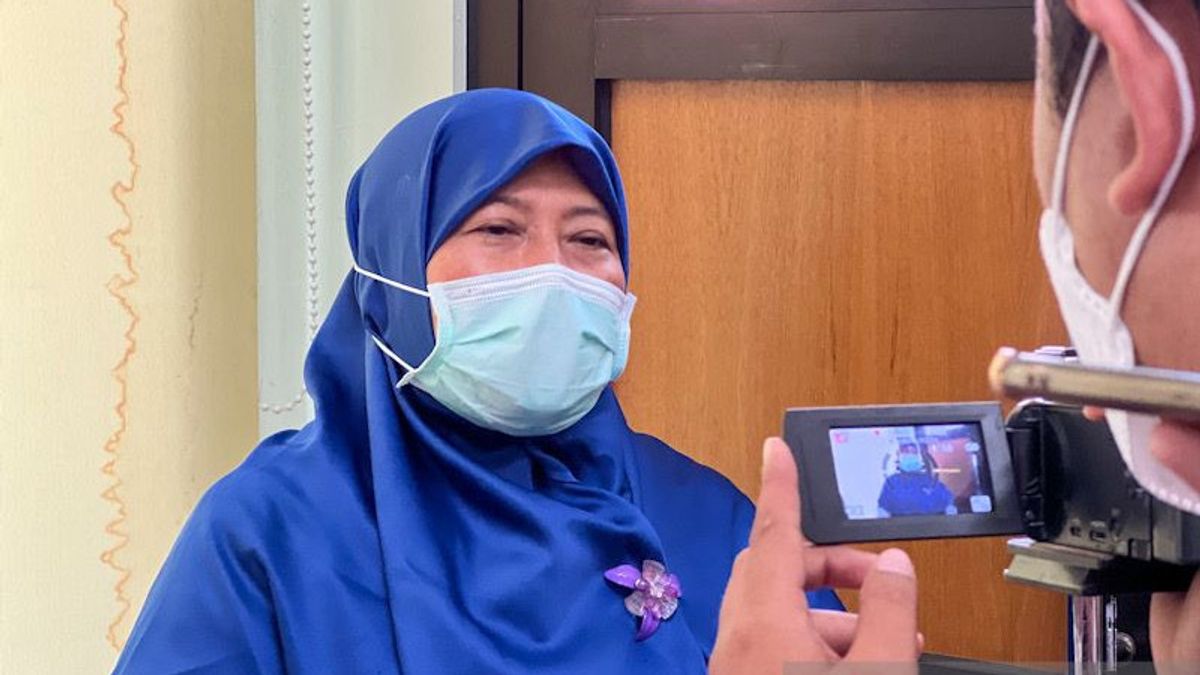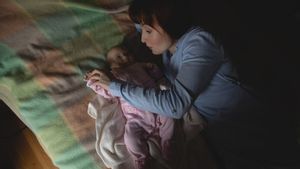YOGYAKARTA - Yogyakarta City Health Office intensifies socialization to increase public awareness of the potential for mysterious acute hepatitis transmission.
Residents are asked to immediately go to health care facilities if they experience symptoms that are suspected to be hepatitis.
"If you experience early symptoms that should be suspected as acute hepatitis, then immediately check with the nearest service facility," said the Head of the Prevention of Infectious Diseases and Immunizations at the Yogyakarta City Health Office, Endang Sri Rahayu in Yogyakarta, Antara, Friday, May 13.
According to him, the initial symptoms of being exposed to a mysterious acute hepatitis that currently attacks children are almost the same as the symptoms of other types of hepatitis, namely fever accompanied by nausea, vomiting, bloating, and changes in body color to yellow if it is severe.
"When you experience early symptoms, you must immediately be treated at the puskesmas and if they do not improve, they will be referred to the hospital. If the yellow color appears, then immediately go to the hospital. The speed of treatment is important," he said.
Endang said, because the initial symptoms shown are almost the same as other infectious diseases caused by viruses, it is possible that people are not vigilant so they think of it as an ordinary disease that will soon recover if given over-the-counter medicine.
"The emergence of a mysterious acute hepatitis disease should not be taken lightly. People still have to be vigilant but not panic," he said.
Before the emergence of acute hepatitis, said Endang, a number of efforts have been made by the government for prevention, including providing hepatitis immunization, especially hepatitis B, which can be accessed free of charge.
"Indeed there is no vaccine for acute hepatitis. But at least with hepatitis immunization can grow immunity against the virus," he said.
Hepatitis immunization is given when the baby is born and repeated at two months, three months, four months, and a booster at 18 months.
The COVID-19 pandemic that has lasted for the past two years has also reduced vaccination coverage in the city of Yogyakarta because it has not yet reached the target set by the DIY Government. Vaccination coverage is around 90-91 percent or has not reached the target of 95 percent in DIY.
Infants born to mothers who are reactive for hepatitis B are also given vaccinations, namely immunoglobulin B or hyperhep B antibodies.
"In a year, there are about 30 mothers giving birth in Yogyakarta who are positive for hepatitis B. Newborn children are immediately given the hyperheb B vaccine," he said.
In addition to vaccination, preventive efforts to prevent the potential for transmission of acute hepatitis can be carried out by implementing a clean and healthy lifestyle and implementing health protocols.
In the city of Yogyakarta, the most common cases of hepatitis are hepatitis A, which is often caused by unhygienic food and drink intake, and hepatitis B, which is mostly transmitted through blood, although some are transmitted through droplets.
"The public needs to ensure that the food and drinks they consume are hygienic and healthy. It is better to reduce snacks outside," said Head of the Public Health Promotion Section of the Yogyakarta City Health Office, Arumi Wulansari.
The Yogyakarta City Health Office has also sent a circular letter of vigilance for the transmission of acute hepatitis to schools, from the Early Childhood Education level to the SMA/SMK level, especially since schools have implemented face-to-face learning.
"Besides being experienced by children, it is also possible for adults to experience acute hepatitis. It's just that adults have a better immune system, so there are no cases experienced by adults," he said.
The Yogyakarta City Health Office also conducted outreach to the kelurahan with the local DPRD. So far, it has only been carried out in three kelurahan and will continue to all kelurahan, a total of 45 kelurahan.
The English, Chinese, Japanese, Arabic, and French versions are automatically generated by the AI. So there may still be inaccuracies in translating, please always see Indonesian as our main language. (system supported by DigitalSiber.id)













